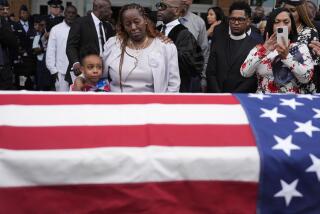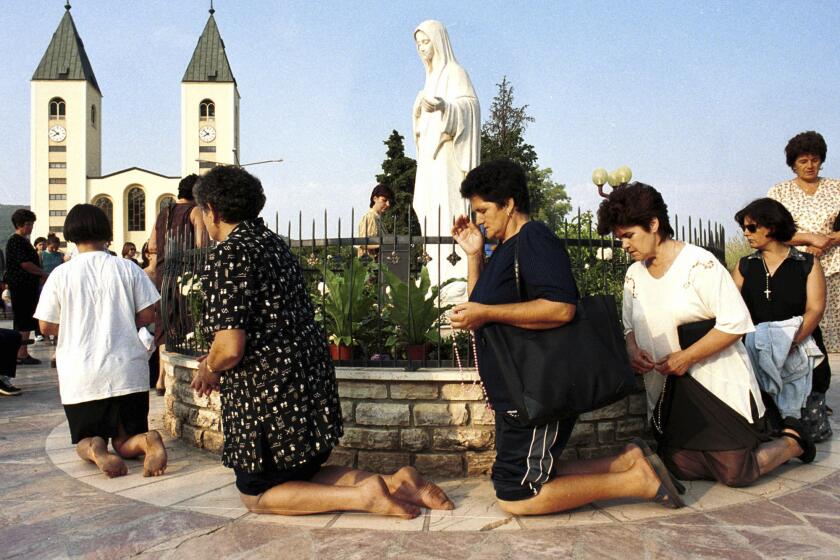Danford Resigning as U.S. Ambassador to the U.N.
After 22 years in the U.S. Senate and five months of hobnobbing with world leaders, U.S. ambassador to the United Nations John C. Danforth decided he preferred the company of his wife.
In his letter of resignation to President Bush, which he sent on Nov. 22 and to which he received a positive reply five days later, Danforth said he was ready to return home to St. Louis.
“Forty-seven years ago, I married the girl of my dreams, and at this point in my life, what is most important to me is to spend time with her,” said the letter, which he made public Thursday. “Because you know Sally, you know my reason for going home.”
His tenure as U.N. ambassador was one of the shortest in history, and his departure leaves a key post to be filled.
Danforth, a former Republican senator from Missouri, was among those considered a potential vice presidential running mate for Bush in 2000, and recently turned down offers to be considered for secretary of State and attorney general, two of his aides said.
Now he will return to Missouri to spend more time with his wife, their children and 13 grandchildren.
Danforth, a graduate of Yale’s law and divinity schools, took the U.N. post with hopes of finishing the peace process in Sudan that he started three years ago as Bush’s special envoy to the war-riven country.
When he arrived in New York in July, talks to end the 21-year-long conflict had broken down, and a new humanitarian crisis in Darfur was raging.
Two weeks ago, he flew the U.N. Security Council to Nairobi on Air Force Two, the vice president’s plane, to nudge Sudan’s warring parties to conclude a peace agreement by the end of the year. It was a day full of cautious hope that Africa’s longest-running civil war would soon be over.
As the cameras rolled, Danforth displayed his stern, no-nonsense side, warning the Sudanese leaders not to fail the Security Council or their country’s people. After the meeting ended, he displayed the warm, personal side that has long made friends of erstwhile opponents.
“You know,” he said, placing his hand on the Sudanese vice president’s shoulder, “we have a saying in Missouri: ‘Show me.’ ”
The ambassador didn’t participate in any of the celebratory dinners that night, preferring to spend time with his staff and catch up on his sleep. The day after Air Force Two delivered him back to his temporary home in the Waldorf Astoria Towers in New York, he sent his letter of resignation to the president. The sense among his friends and aides was: Peace is coming to Sudan, the term is ending, it’s time to go home.
The timing of his announcement caught U.N. diplomats by surprise, especially because he and his wife just remodeled the ambassador’s residence. On Tuesday night, he offered no hints of his departure to a roomful of diplomats he had invited to a reception at the U.S. mission. He danced with Sally while Mary Wilson of the Supremes sang.
Danforth seemed to have little patience for the vagaries of the diplomatic world. He has said that rallying different parties into a consensus is a skill that he learned in the Senate, but the bureaucratic roundabout of international diplomacy makes a Senate filibuster look tame.
When he was forced to drop the word “sanctions” from a resolution he introduced on Sudan in July that threatened economic penalties, he acceded to what he called “U.N. speak” with amused exasperation. He said that one could “use the word ‘banana,’ so long as it is clear that it equals sanctions.”
Danforth, an Episcopal minister who presided at President Reagan’s funeral, has paid special attention to the role of religion in abating conflict.
In a gracious gesture for Muslim colleagues who were fasting during Ramadan, he changed the monthly Security Council luncheon to a sunset meal to break the fast.
More to Read
Start your day right
Sign up for Essential California for news, features and recommendations from the L.A. Times and beyond in your inbox six days a week.
You may occasionally receive promotional content from the Los Angeles Times.






